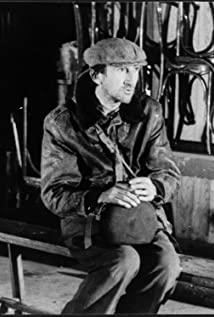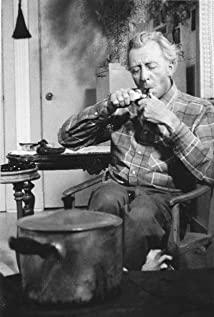1
In the analysis of the original work, I have already talked about the existential tragedy of the young girl Muchet.
This girl lives in a rural village in northern France near the English Channel. In Victor Hugo's novels, it is often mentioned that this place is ridiculed by Parisians.
But here I am concerned about Bresson’s approach:
First, the short and quick introduction at the beginning caused the poachers to set up traps, paralleling Mr. Assen's sexual assault on Muschett. It gives us the feeling that the lower class is full of traps (movement). This is the most effective way of telling us how we feel about existence. The circular trap shape is always imprinted in the reader's mind. In a corrupt ecology, there are traps everywhere. There are people looking for opportunities to kill people everywhere.
Second, because the movie is not divided into 4 chapters as the original narrative, so I asked my mother to string the whole plot together, let him appear at the beginning, saying that the poor cannot die. The way of doing this is very effective to explain why the girl is in a free-range state, and what his father's life style is like. It must be admitted that the performance of images is more powerful than narratives. But their statements are very serious, and their objects are very clear: What makes Mushat?
Third, the historical plot in the original work was used by the director to become a small tool to embody existence. For example, stomping on the mud, smuggling father covered two boxes of wine and hide-and-seek with the police. For example, the clothes that girls often untie, and the old lady takes out the stored white shroud from the cabinet.
Fourth, how to show that girls are happy to hate others. This is what was written in the original book. We saw him deliberately smashing mud at others at the school gate. The rendering here is more serious. She almost always bounced back the evil she had received. Her existence determines her behavior pattern. This is a huge source of tragedy.
Fifth, showing M's home: It can be described as the four walls of a family disciple, plus the little Gustave who is crying loudly, in such an environment is really upset. The noise of the father drunk returning to school and driving in the film is not in the original work. This detail is very vivid. M makes coffee and milk in this ecology, watching her mother die.
At its core, the film is Christian. There are mediocre evils (little evils mentioned by Liu Bei) everywhere.
It's like the suicide of a young girl, the really poor people don't know their suffering.
2
Details: It shows P32 Assen in the wall of Camille, digging out the spring trap that cost him 30 Pistor, this is a bribe he paid. His fight with the guard Matthew is the most central plot, which Bresson showed intentionally. Including tearing, biting with teeth. This led to Assen’s unhappiness and wanted to vent on M.
P63 Nothing can escape M's eyes, she is always curiously peeping at the boys, and sometimes even taking pleasure in it. In the movie, it is reflected that the two boys took off their pants to reveal their yin, and M's calm P52 female man turned around and walked away. P64 was molested by the blacksmith Pulgit, who was also the former assistant to the mayor. (This kind of writing reminds me of the ugliness of humans in the extreme realism in "The Manifestos". P66 has always been afraid and contempt for those who violate and abuse themselves, but they admire Mr. Arsene (this is ignored in the film) ). However, both books and movies reflect the vague sense of morality of living at the bottom M. It seems that only resignation is the magic weapon.
P73 makes M feel a very good nickname-Dudu, which is useless in the movie. It is a touch of warmth given to M by his mother before death.
3
It will strangely arouse the audience's biological pity. The lower class live like animals, like the jackals that South American directors said. They are uneducated and don't know it.
The hell on earth is always created by people themselves. There, there is no love or mercy.
I suddenly seemed to understand that the "Rosetta" that won the Cannes Prize is also a kind of compassionate tradition of Bernanos.
View more about Mouchette reviews









